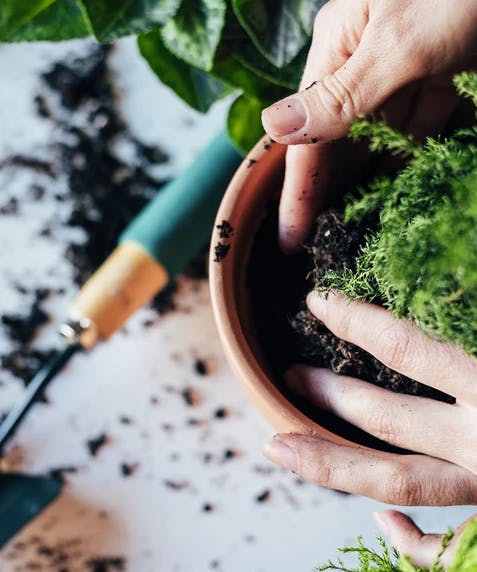How Getting Dirty Relieves Stress And Depression
Are we truly evolving to adapt to the ever-increasing digital demands of life, or are we suffering the consequences of tuning into our televisions and tablets?

As mental and physical health disorders are on the rise, encouraging children to play in the dirt has coincidently been encouraged less and less. Now, scientists are seeing the mind-body connection with building mud pies, and it's reaping serious health benefits.
Increase in Urban Development
Take a giant breath. What do you inhale? The fresh scent of an evergreen tree, or the smell of motor pollution? Modern conveniences such as automobiles, industrial equipment, and waste disposal have left humanity — and our environment — stressed out.
The shift from living in predominantly agricultural-based societies to metropolitan and urban development means major economic boom, but unfortunately, it can create health concerns for the public. Urban sprawl occurs as residential housing in open areas, and living accommodations in already populated areas are being built.
This growth in industrial saturation can leave us with an inability to maintain a healthy immune system.
As societies become more reliant on transportation and private automobiles for commuting, pollution increases. This growth in industrial saturation can leave us with an inability to maintain a healthy immune system, along with poor ways of coping with the added stresses of modern living.
What Role Does Ecotherapy Play?
As the old saying goes, “necessity is the mother of invention.” Ecotherapy was bred from a need for humans to get back to their roots—literally. While it's a newer medical profession, and is not meant to replace evidence-based treatment, ecotherapy has been shown to relieve symptoms of depression and anxiety. J. Phoenix Smith, an ecotherapist, has both studied and benefited from the effects of ecotherapy. Smith has treated patients suffering from medical conditions such as depression using ecotherapy, in conjunction with traditional treatments. Smith reports that holding soil for 20 minutes relieves tension and anxiety. Sounds crazy, right? Not quite.
Smith has treated patients suffering from medical conditions such as depression using ecotherapy, in conjunction with traditional treatments.
A Little Dirt Don’t Hurt
A well-known scientific journal also published an article verifying the therapeutic effects of dirt-handling. Christopher Lowry, a neuroscientist at the University of Bristol in London, injected mice with the soil-based M. vaccae bacterium and later dissected the mice. He found higher levels of serotonin-producing neurons in regions of the brain responsible for regulating mood.
Further research is being conducted to develop a microbe-based stress vaccine.
Additionally, researchers at the University of Colorado found a correlation between 10(Z)-hexadecenoic acid (a fatty acid found in the soil-based Mycobacterium vaccae) and an increased resilience to stress. Further research is being conducted to develop a microbe-based stress vaccine to be tested on patients suffering from high-stress related conditions such as PTSD.
Closing Thoughts
With multiple research projects being conducted worldwide, the future is hopeful for those suffering from mood disorders such as anxiety and depression. It looks like the kids who played in the sludge, maneuvering their way through the worm-infested soil were at an advantage to ward off mental and physical health conditions. It’s definitely worth “digging” up a little dirt and investigating for yourself by reconnecting with the beautiful outdoors.